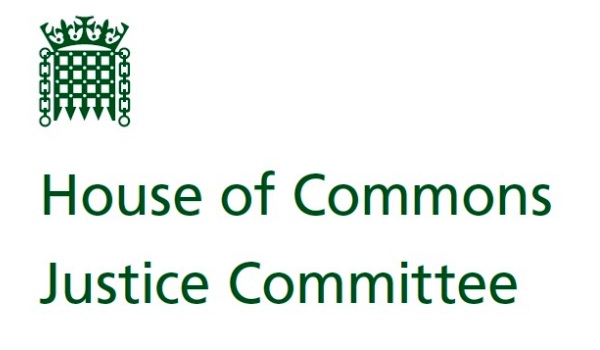Budget cuts and ‘need for practicality’ blamed for MoJ adopting narrow approach to reform, report claims
Lack of decisive action by Government ministers is letting down a generation of young adults and leading to “preventable crimes”, a cross-party group of influential MPs has warned.
The remarkable improvements in outcomes for under 18s in custody are in sharp contrast to a criminal justice system failing their young adult counterparts, a new report claims.
Budget cuts, the “need for practicality” and other priorities in the system have been blamed for the Ministry of Justice (MoJ) adopting a narrow approach to reform.
Some 18 months after the Government responded to the Commons’ Justice Committee’s report, ministers stand accused of wasting young adults’ talents and energies in the CJS – without any real positive outcomes.
The committee’s latest findings urge the MoJ to commit to a programme of fundamental change within its Justice 2030 project.
It asks for a more distinct approach to be taken to young adults, on the basis of stronger evidence than the Ministry has gathered to date, particularly about how the 18 to 25-year-olds are treated in prison.
While sympathising with the constraints, the MPs say the MoJ should reflect on where it has gone wrong on not reaping the potential benefits of targeting scarce resources at those prisoners for whom there may be the greatest impact.
Justice Committee chair Bob Neill said: “The Government’s response to our report in the last Parliament was disappointing because it failed to acknowledge the strength of evidence for more significant change.
“Having looked at this issue again, it is clear the current approach taken by ministers is not yet working and we are not convinced that it will.
“While the 18-25 age group is one that offends the most, young adults have the greatest potential to make the transition to a crime-free adulthood while the brain is still developing. That is why a clear and effective strategy from the Government in this area is essential.
“The waste of young adults’ talents and energies is one of the great social challenges of our time and the lack of action is failing society at large.
“The public continues to experience crimes which should be preventable and society can gain from these young adults’ contributions if they are given the right opportunities.
“Over the next decade, we expect prison and probation services to have developed cultures which recognise young adults’ strengths and support them effectively. There is an overwhelming enthusiasm in the sector for change.”
The last committee published a report on the treatment of young adults aged 18 to 25 in the CJS in October 2016.
Recognising that the brain is still developing up to the mid-20s, and that some policies and practices may do more harm than good, it proposed a new strategic approach.
This was because of the failure of successive governments to deal with young adults effectively which the committee found was crucial to enable them to make a successful transition to a crime-free adulthood.
However, the then Government’s response, published in January 2017 when Liz Truss was Justice Secretary, did not accept many of the “wide-ranging, evidence-based” recommendations.
Since April 1 last year, the respective responsibilities of the MoJ and Her Majesty’s Prison and Probation Service (HMPPS) were clarified with the former taking over commissioning public and private sector prisons, policy development, standards and performance scrutiny, and the latter focusing on operations.
The responsibility for the operation of custodial establishments for under 18s and over 18s was unified in HMPPS following changes to the remit of the Youth Justice Board.
The result of this appears to be that there is no longer a central lead or focus on young adults for prisons within HMPPS, the report suggests.
The MPs claim there is “no evidence” that the argument made by the last committee report about the potential for savings to be made by investing in more developmentally appropriate practices has been considered, which may be short-sighted.
The report Young adults in the criminal justice system adds: “The restructuring of the Ministry and reconfiguration of HMPPS represented opportunities to re-think the strategic approach to young adults and to develop dedicated funding and governance arrangements which have the potential for significant improvement in outcomes that are urgently needed.”
It notes that the MoJ aims to be a data-driven department, adding: “We are keen to be convinced of the efficacy of its approach to young adults, so it is disappointing not to see indicative evidence of improvement in outcomes some 18 months after its response to our predecessor’s report.”
The committee has decided to scrutinise the Ministry’s commitment to be data-driven with respect to young adults by indicating it will hold annual reviews of HMPPS’s outcomes against performance measures – including reconviction, compliance with community orders, levels of offending in custody, the use of adjudications and indicators of well-being.
The report concluded: “While we welcome the Ministry’s commitment to implement as far as possible the recommendations of the Lammy Review, the strikingly slow progress that has been made on improving outcomes for young black and Muslim men in the four years since the Young Review which the Government were also committed to implementing, illustrates the scale of the problem and resulting action required.
“The MoJ’s Race and Ethnicity Board should therefore develop, as a priority, a meaningful programme to address disproportionalities for young BAME adults aged 18 to 25.
“As disproportionalities are likely to originate outside the criminal justice system addressing them must also be a high priority for the Reducing Reoffending Taskforce.
“The NPS young offenders Board should also extend its workstream to reduce disproportionalities to young adults up to the age of 25.”







